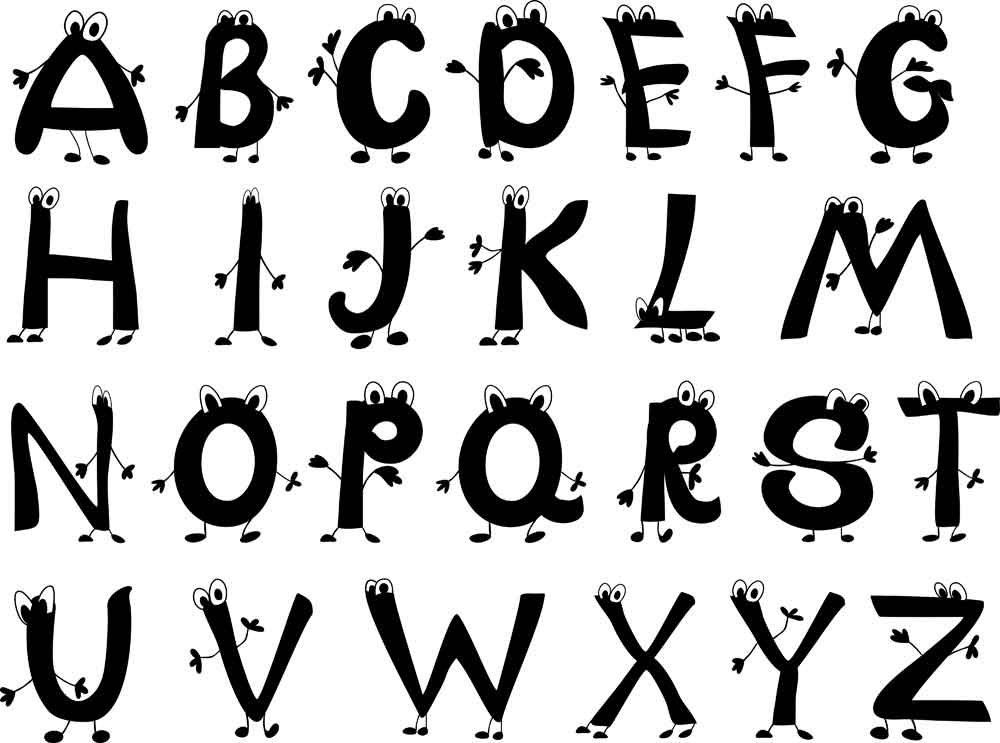 What are the CDC’s Developmental Milestones?
What are the CDC’s Developmental Milestones?
The Center for Disease Control (CDC) first released their checklists for developmental milestones in 2004 to help parents and pediatricians understand typical childhood development. The checklists, which were widely distributed to families and medical professionals, have served as a resource guide to understand the cognitive, physical, social, and linguistic development in early childhood before children start formal schooling.
The markers identify the age children are expected to meet developmental milestones, which include a wide list of behaviors, from connecting words into phrases to playing peek-a-boo and tracking items visually. The checklists were released as part of the CDC’s “Learn the Signs. Act Early.” campaign, which encouraged doctors and families to be on the lookout for signs of developmental delay and seek early intervention for their children to promote age appropriate skills and tamper delays. Updated Milestone Checklists were released in February 2022, the first revision in nearly twenty years.
What exactly changed and why?
The checklists for developmental milestones were updated with the intention to increase clarity and help identify developmental delays and social communication disorders, such as Autism, earlier than with the support of the previous documents. The CDC relied on a panel assembled by the American Association of Pediatricians (AAP) of 13 pediatricians and development experts who conducted an extensive literature review to update and streamline the guidelines. There were many revisions but notable changes include:
- Benchmark milestones are now based on the age that most children exhibit the behavior rather than an average age. Milestones are now set where 75% of all children show the marker rather than the previously used 50% landmark.
- New checklists were added for children aged 15 and 30 months old. There is now a milestone checklist available for every well child visit between 2 months and 5 years, ensuring that pediatricians and parents are talking about development consistently.
- There are fewer milestones with less jargon. The CDC removed vague language such as “may” or “begins” and eliminated duplicate and repeating developmental milestones, making the lists easier to use and more clear cut.
What do the experts say?
Unsurprisingly, not everyone agrees with the revisions, despite the well intentioned attempt to make the identification of delays more clear cut.
While critiques vary widely, the elimination of some developmental milestones have led some to wonder if by simplifying, parents and doctors are going to miss important information about child development. For example, crawling is no longer included as a development milestone and physical and occupational therapists are concerned that physical development delays might fall through the cracks as a result of the omission.
In fact, the American Speech-Language-Hearing Association (ASHA) even released a public statement criticizing inconsistencies in the guidelines and expressing concerns about where critical language milestone markers were placed on the checklists. Universally, experts worry about the shift to comparing development to where most children exhibit behaviors versus the average age. In doing so, many markers have been pushed up to an older age and may actually unintentionally lead to less early identification of delays.
What can I do as a parent?
It’s important to remember that these checklists for developmental milestones are a tool and not a formal screening measure. They are used to promote conversation, inform understanding of childhood development, and provide guidance on what is reasonable to expect from your child as they grow up. Involved and observant families remain the most important tool a doctor can use to assess a child’s development.
Here are some steps you can take to better understand child development and make good use the checklists for developmental milestones:
- Don’t rely on your pediatrician visits to think about your child’s milestone achievement. The CDC offers a free app that helps you keep track of your child’s development and can guide your conversation with your pediatrician.
- Provide age appropriate activities and toys for your child to promote development. Companies such as Lovevery deliver a developmentally appropriate play kit to your house every two months with a guide for you to unpack your child’s benchmarks and how to appropriately play with them. If you’re looking for a less expensive alternative, websites like Babylist and The Bump provide month-by-month development and play guides to help support learning and play with your child.
- Be your child’s advocate. If something concerns you, voice it to your pediatrician. Provide examples of the behavior you are seeing and why you are worried. If your doctor is not concerned but you still are, don’t hesitate to seek a second opinion.
Our team is available for consultation and parent coaching in support of child development and achieving developmental milestones. We work closely with related service professionals and help families to connect with trusted experts as appropriate. Contact us for more information.
By Marisa Krohn, Learning Specialist, Brad Hoffman, Board Certified Educational Planner and Learning Specialist, Faya Hoffman, Board Certified Educational Planner and Learning Specialist, Laurie Gross, Reading Specialist and Special Educator

 For students who are experiencing mental health challenges that require specialized care in a residential school environment, therapeutic boarding schools can provide the more intensive and integrated support that they need. At therapeutic boarding schools, students are provided with tools to help them navigate difficult emotional experiences, build resilience, work with their families, and prepare for the next steps in their lives. These schools offer individualized programming and clinically-based treatment options to meet students’ needs in a holistic manner. For students who experience clinically significant anxiety, depression, PTSD, attachment disorder, and other mental health challenges where treatment from home with local providers has not been enough, therapeutic boarding schools can be a critical stepping stone on the path to recovery where educators, residential faculty, and clinicians – including psychologists, social workers, and psychiatrists – work collaboratively as a multidisciplinary team in partnership with families. In this blog post, we talk to several administrators from therapeutic boarding schools across the United States to hear more about the specialized support these schools offer to students and their families.
For students who are experiencing mental health challenges that require specialized care in a residential school environment, therapeutic boarding schools can provide the more intensive and integrated support that they need. At therapeutic boarding schools, students are provided with tools to help them navigate difficult emotional experiences, build resilience, work with their families, and prepare for the next steps in their lives. These schools offer individualized programming and clinically-based treatment options to meet students’ needs in a holistic manner. For students who experience clinically significant anxiety, depression, PTSD, attachment disorder, and other mental health challenges where treatment from home with local providers has not been enough, therapeutic boarding schools can be a critical stepping stone on the path to recovery where educators, residential faculty, and clinicians – including psychologists, social workers, and psychiatrists – work collaboratively as a multidisciplinary team in partnership with families. In this blog post, we talk to several administrators from therapeutic boarding schools across the United States to hear more about the specialized support these schools offer to students and their families. As literacy instruction has evolved, the proverbial pendulum has swung from the Bottom-Up approach, which includes a strong focus on phonics instruction, to the Top- Down approach, also known as Whole Language, where authentic literature became the focus. The former, largely popular in the years before the early 1980’s, was essentially built on the idea that literacy instruction at the elementary level should include the “building blocks” of language- grammar, rules, and letter/word family constructs particular to the English language. The philosophy here was that with this Bottom -Up theory, students would integrate the rules that they learned, the vocabulary, etc, and become proficient readers.
As literacy instruction has evolved, the proverbial pendulum has swung from the Bottom-Up approach, which includes a strong focus on phonics instruction, to the Top- Down approach, also known as Whole Language, where authentic literature became the focus. The former, largely popular in the years before the early 1980’s, was essentially built on the idea that literacy instruction at the elementary level should include the “building blocks” of language- grammar, rules, and letter/word family constructs particular to the English language. The philosophy here was that with this Bottom -Up theory, students would integrate the rules that they learned, the vocabulary, etc, and become proficient readers. Specialized boarding schools offer students flexible, individual and small group instruction tailored to their unique learning needs. For students with ADHD, executive function issues, dyslexia, or other learning differences, a specialized boarding school not only offers students differentiated and targeted instruction as well as seamless access to accommodations, but acceptance into a community. With smaller faculty to student ratios and skillful instructors working collaboratively with learning specialists and related service professionals guided by evidence-based research, specialized boarding schools offer a comprehensive level of support that cannot be matched at other programs. But just like the students themselves, no two specialized boarding schools are exactly alike. In this blog post, we hear from the experts at four top programs in New England to learn how families can select the right school and make the most of the experience once a student gets there.
Specialized boarding schools offer students flexible, individual and small group instruction tailored to their unique learning needs. For students with ADHD, executive function issues, dyslexia, or other learning differences, a specialized boarding school not only offers students differentiated and targeted instruction as well as seamless access to accommodations, but acceptance into a community. With smaller faculty to student ratios and skillful instructors working collaboratively with learning specialists and related service professionals guided by evidence-based research, specialized boarding schools offer a comprehensive level of support that cannot be matched at other programs. But just like the students themselves, no two specialized boarding schools are exactly alike. In this blog post, we hear from the experts at four top programs in New England to learn how families can select the right school and make the most of the experience once a student gets there.